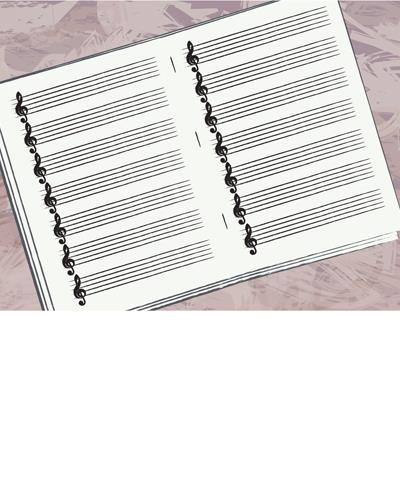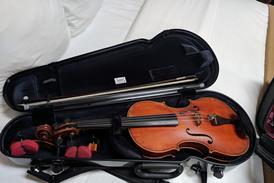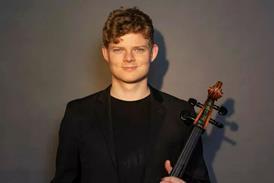There's nothing stopping string players from commissioning their own works, argues cellist David Cohen – apart from their own reluctance

When I’m performing on stage, I can often tell by the listeners’
body language that they’re scared of the new piece on the
programme. Sometimes I can even see it as they’re entering the
auditorium. I believe that as music institutions have lost their
inclination for taking risks, this attitude has rubbed off on the
audiences. Consequently, 21st-century concertgoers have to be
re-educated in appreciating the value of modern classical music,
and string players have the responsibility – and opportunity – to
be at the forefront of this re-education.
The whole process of composition is hugely rewarding for a string
player to be involved in. I don’t pretend to be able to write music
myself but I think I know the cello better than most composers, so
when I commission a piece I make it clear from the outset that I
like to be involved if possible, and that they’re always welcome to
call me and ask whether a certain passage is possible for a cellist
to perform. Last year I commissioned the Irish composer Ian Wilson
to write a piece for cello and piano. When it was finished, we went
through it together and there were several points where I gave
feedback, and where passages could be rewritten to maximise the
piece’s effects. I was glad to be able to do this, especially since
we hardly knew each other’s work before we met – I’d listened to
lots of his music and he’d heard me perform the Dvo?ák Concerto in
Dublin, but when we sat down, something clicked between us and I
instinctively decided to commission him. Furthermore, as Joel
Smirnoff has persuasively argued, stringed instruments have
such an incredible variety of tone that composers love to write for
them.
So, what is it that stops musicians from commissioning? There’s a
whole raft of obstacles, beginning with the funding. I’ve paid for
some commissions with my own money, and sometimes friends have been
kind enough to support them. Going out and finding sponsors is
undoubtedly difficult, and it’s true that not everyone can do it –
I find it incredibly daunting to go to someone I don’t know and
promote my ideas. Sometimes the reaction is, ‘Why should I do this
– isn’t there enough good music out there?’ But it’s necessary to
make a potential sponsor understand the impact that works such as
the Rite of Spring had on their audiences. A concert is over in an
evening, I’ll argue, but a great new work is something that will
last for decades if it’s successful. When private sponsors are made
to feel that their name will be associated with a work of art, they
very often come around to the commissioner’s way of thinking.
If I still can’t get sponsorship, I’ll try another way – I’d
re-mortgage my house if I had to! It’s been interesting to see how
some of my peers have reacted to my attitude about this: I’ve been
told I’m crazy, that I’m ‘setting a precedent’, that I must not go
ahead with these commissions. Someone once called me a ‘rebel with
a cause’ and I guess they are right on this one. Fear is a huge
deterrent for some musicians, but as I always tell my students,
it’s essential to take risks to gain rewards.
I always think of Mstislav Rostropovich’s legacy to the cello
repertoire, as he became so involved in the creation of works such
as Prokofiev’s Symphony–Concerto. Playing it today, it’s
easy to notice the cellist’s helping hand in the composition, to
the point where you think, ‘This isn’t Prokofiev any more, it’s
Slava.’ To be involved in that process of creation is the greatest
experience in the world, for any musician, and I feel it is my
responsibility as a performer to encourage and help the next
generation of composers.
Interview by Christian Lloyd































No comments yet